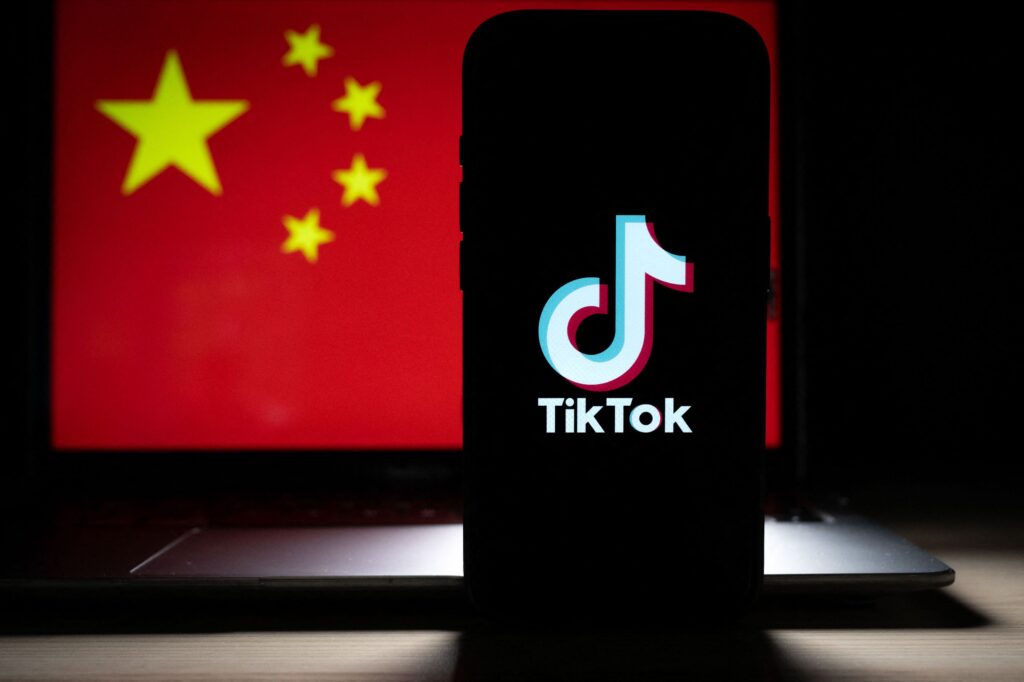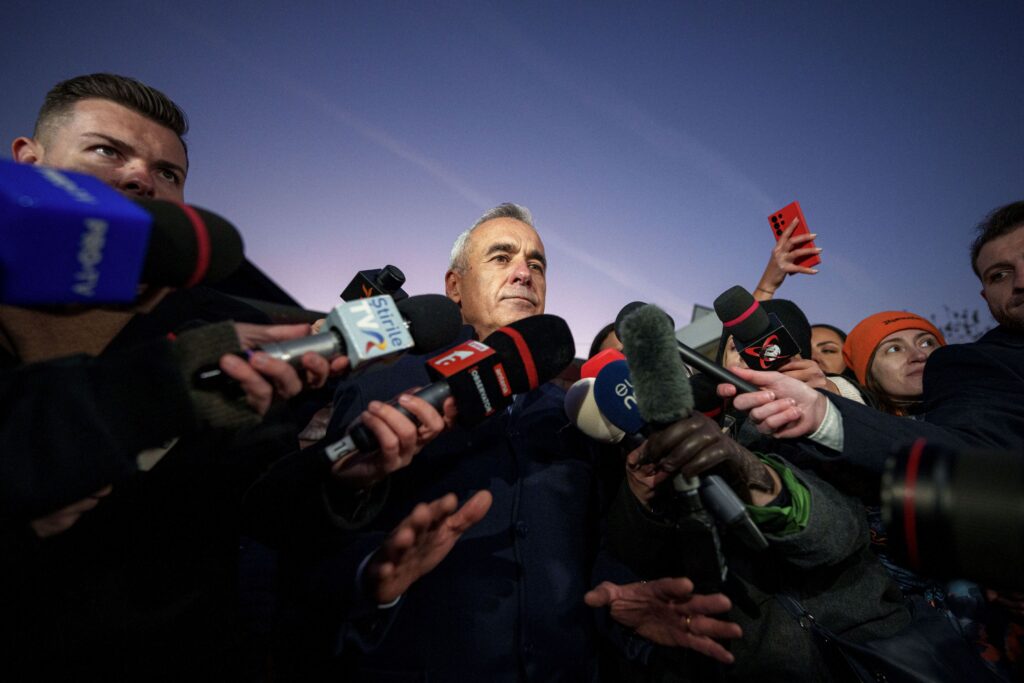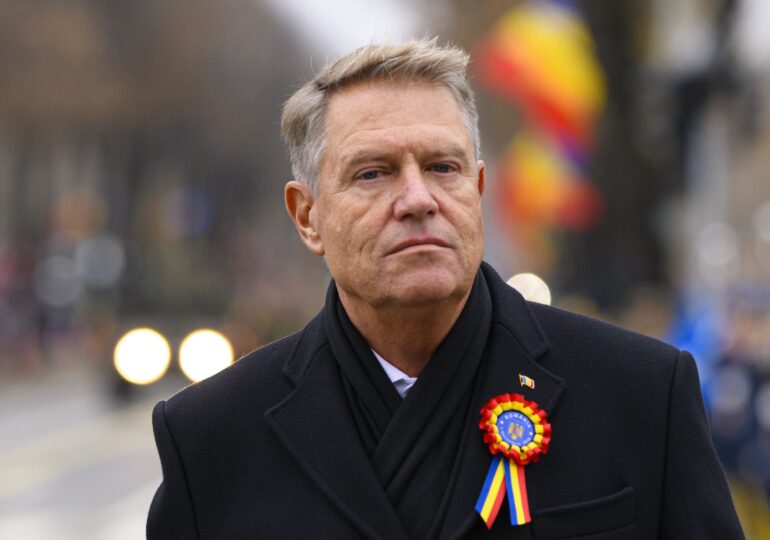After reviewing all the documents of the intelligence agencies advertised by the presidential administration, the main sensation is that the secret services were completely caught off guard by the scale and intensity of the hybrid attack.
Also, there was no quick deterrence reaction, for unknown reasons, and political leaders did not react to the reports of the secret services, being preoccupied with the electoral campaign and using the information for their own and party interests.
From the same documents, it also emerges that Călin Georgescu’s person was not unknown to the SRI. Agents had been monitoring his activity since 2020, but they failed to deter the operations carried out by him on the social network controlled by China.
"The first TikTok notice regarding the promotion campaign of Călin Georgescu on TikTok was made in 2020, and in 2021 TikTok concluded that it was suspicious activity," the SRI report states.
The document makes no reference to what followed that finding of "suspicious activity" and what has happened in the last three years.

Starting in October of this year, SRI agents observed that Bogdan Peșchir, a Romanian citizen from Brașov, made payments of 381,000 dollars to users involved in the intensive promotion of Călin Georgescu.
"Bogdan Peșchir displays a standard of living that does not correspond to the activities carried out through the company he owns, namely DIGITAL ON-RAMP SOLUTIONS SRL Brașov, established in 2021. Prior to the establishment of the company, he worked as a programmer within entities (GLOBAYA FINTECH SRL and BITXATM TECHNOLOGY SRL, both from Brașov) associated with the cryptocurrency field and owned, among others, by Gabriel Prodănescu, a person who is also a citizen of South Africa, where he emigrated in 1995," the SRI report states.
Candidate Ciucă and why Georgescu was not blocked
Thus, the public learns about a network formed by two individuals who distributed 381,000 dollars to "influencers" for the promotion of Georgescu.
Generally, in such reports, intelligence agents do not provide all the data, and the presented case seems like just one example among many other networks that participated in the promotion of the candidate heavily financed by Russia.

Bogdan Peșchir is described as a person who has access to large sums of money that come, through indirect means, from abroad.
Moreover, from the two SRI reports, it is not clear why no decision regarding candidate Călin Georgescu was taken by the Permanent Electoral Authority.
From the presented data, it is evident that within the state institutions, the use of undeclared funds for the campaign by Călin Georgescu was known, which represents a serious violation of Romania's electoral legislation.
On November 21, two days before the first round of the presidential elections, the Central Electoral Bureau publishes a decision requesting social network administrators to no longer run videos of Călin Georgescu as they are illegal.
However, it was too late. TikTok refuses to enforce the decision, and political leaders, engaged in the electoral campaign, protest, arguing that such a measure will favor another political competitor.
"Regardless of what we think about a candidate's positions, Romanians settle the subject at the ballot box, through voting, not parties, through backroom deals. PSD is willing to do anything to get Simion into the second round! Romanians must come out to vote to oppose these maneuvers that turn democracy back to the '90s!" wrote Nicolae Ciucă at the time, protesting on his Facebook page.
The hybrid attack
Political competition has produced an institutional deadlock exploited by Russia.
Those who devised the Kremlin's campaign prepared and launched it knowing very well the political context in Romania, the competition between candidates, and the loss of authority by Klaus Iohannis, a highly unpopular president in the final part of his term.
The timing was chosen so that the head of state, the prime minister, and the members of the Government who have access to classified information could not act, even if they receive information from the secret services.
The deadlock was total, and the hybrid attack of unprecedented intensity in Romania.
"His rise in opinion polls was determined by a coordinated popularity growth campaign, amplified two weeks before the election date, especially on the TikTok platform, which managed to ensure his victory in the first round, with 22.94%," the SRI report states.
Therefore, we have a 17% increase in Călin Georgescu's support, achieved in two weeks, half of the legal campaign period.
Iohannis' Laziness Gave Birth to Monsters
What happened in these elections reveals major institutional weaknesses in Romania.
Strategies to protect the electoral process were not prepared. There were no reaction exercises in case of a presumed attack, and the institutions, both military and civilian, do not have procedures to deter and repel such attacks.
On the other hand, a major lack of responsibility was observed on the part of President Iohannis, who did not act in time to protect Romania's democracy.
For at least a decade, Călin Georgescu has been Russia's advocate in Romania, but no one took him seriously. By promoting all sorts of fantasies, he thus masked the Kremlin's messages aiming to erode the population's trust in the European Union, NATO, democracy, freedom, and political pluralism.
No one paid attention to him, considering him too crazy to pose any threat to Romania's security, while his associates awaited the opportune moment to launch the attack.
Călin Georgescu would not have been able to win the first round of the presidential elections without significant internal help.
Russia's agents infiltrated discussions in groups of military reservists, within cults and religious communities, radicalized a large part of the Romanian diaspora, turning it from a promoter of democracy into an extremist force.
The danger has not passed. Romania is in the midst of a hybrid war, society is destabilized, and no one yet knows which direction the country will take.

